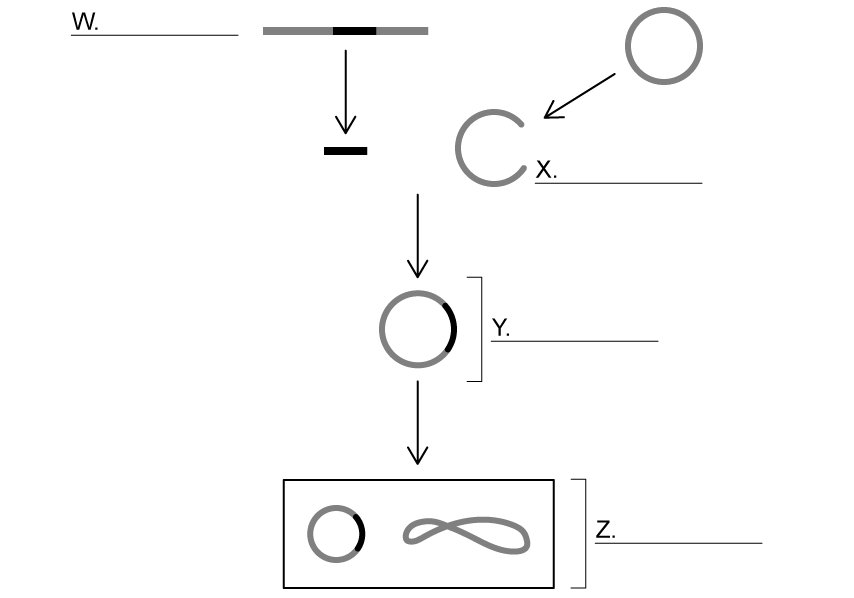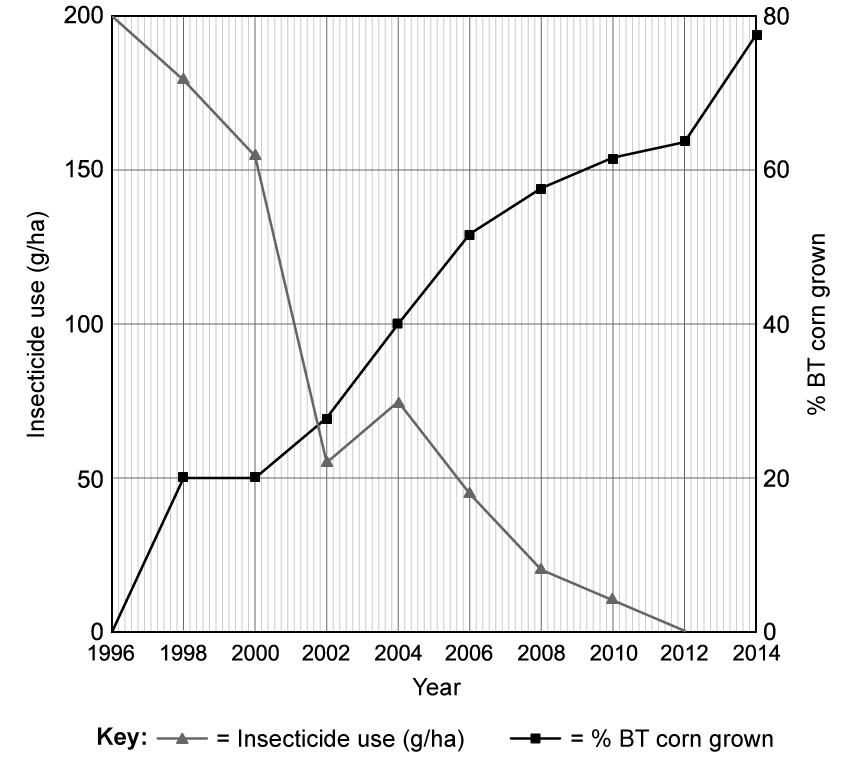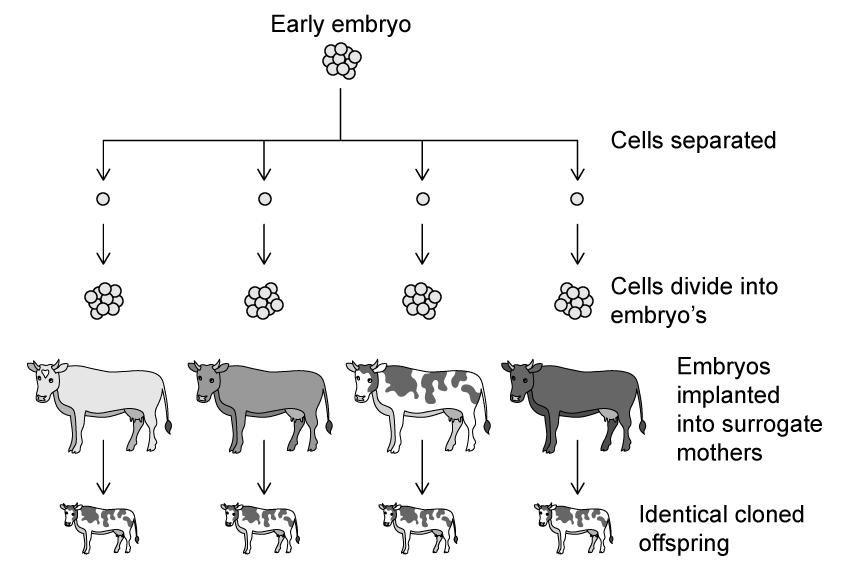a)
In the electrophoretogram, the DNA has moved from the negative cathode to the positive anode.
State the property of DNA which results in movement from cathode to anode.
[1 mark]
Assess your score
View Answer
b)
State two uses of gel electrophoresis.
[2 marks]
Assess your score
View Answer
c)
In some situations, gel electrophoresis cannot be carried out as the DNA samples are not collected in a large enough quantity.
Identify the process used to amplify the DNA in order to supply enough DNA for electrophoresis to be successful.
[1 mark]
Assess your score
View Answer
d)
The stages of electrophoresis can be seen below.
Complete the table below by adding a number to the column to show the correct sequence of events in the process. The first one has been done for you.
A sample of DNA is collected from an individual
1
Samples of DNA fragments are loaded into wells in the agarose gel using a micropipette
An enzyme is used to create fragments of the DNA in the sample
An electrical current is applied to the tank
[2 marks]
Assess your score
View Answer
Next Question
a)
The molecules named below are all required during the process of PCR.
Draw a line between the boxes to show the function for each of the molecules named.
[3 marks]
Assess your score
View Answer
b)
State the property of Taq polymerase that makes it suitable for use in PCR.
[1 mark]
Assess your score
View Answer
c)
The graph shows how the quantity of DNA increases over several cycles of PCR
Identify the stage of the graph where replication is exponential.
[1 mark]
Assess your score
View Answer
d)
The electrophoretogram shows a pattern produced from the DNA of two people.
State how the electrophoretogram shows that the two people are identical twins.
[1 mark]
Assess your score
View Answer
Previous Question Next Question
a)
The diagram shows the process of genetic modification used to produce multiple copies of a required gene.
Label the diagram using the words provided.
Recombinant DNA Transgenic organism Plasmid Desired gene
[4 marks]
Assess your score
View Answer
b)
Identify the vector used in this genetic modification process.
[1 mark]
Assess your score
View Answer
c)
Gene transfer between organisms is possible due to the universal nature of the genetic code.
State what is meant by the term 'universal' .
[1 mark]
Assess your score
View Answer
d)
Identify the enzyme used in recombinant DNA technology to cut out a desired gene at a specific base sequence resulting in the formation of sticky ends.
[1 mark]
Assess your score
View Answer
e)
Crops can be genetically modified to include the BT toxin, a natural pesticide produced by a bacterium, Bacillus thuringiensis . The graph shows the changes in pesticide application in response to changes in the quantity of BT modified crops grown in the U.S.
Describe the effect that the increasing use of BT crops has on pesticide application.
[1 mark]
Assess your score
View Answer
f)
BT toxin has a negative impact on many types of insects, including those which do not feed on the crops such as bees, flies, beetles and butterflies.
Suggest why there may be opposition to the use of BT corn by some.
[1 mark]
Assess your score
View Answer
Previous Question Next Question
a)
Identify the cloning process shown in the image.
[1 mark]
Assess your score
View Answer
b)
Complete the table by placing a (✓) or an (X) in the correct column to identify which methods of cloning are natural and which are artificial.
Natural cloning Artificial cloning
Parthenogenesis
Somatic cell transfer
Bulbs
Rhizomes
Cuttings
[5 marks]
Assess your score
View Answer
c)
The cells of the early embryo are described as being pluripotent.
Define the term pluripotent.
[1 mark]
Assess your score
View Answer
Previous Question Next Question
One mark is available for clarity of communication throughout this question.
a)
Outline some of the concerns that people may have over the use of genetically modified crops in agriculture.
[4 marks]
Assess your score
View Answer
b)
Describe some of the potential benefits of genetic modification of crops.
[5 marks]
Assess your score
View Answer
c)
Outline the process used to determine paternity using electrophoretograms produced in gel electrophoresis.
[3 marks]
Assess your score
View Answer
Previous Question






